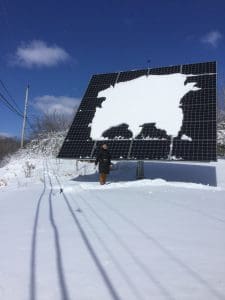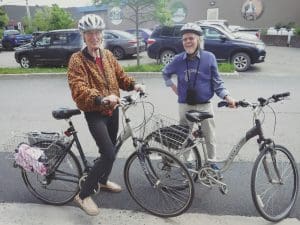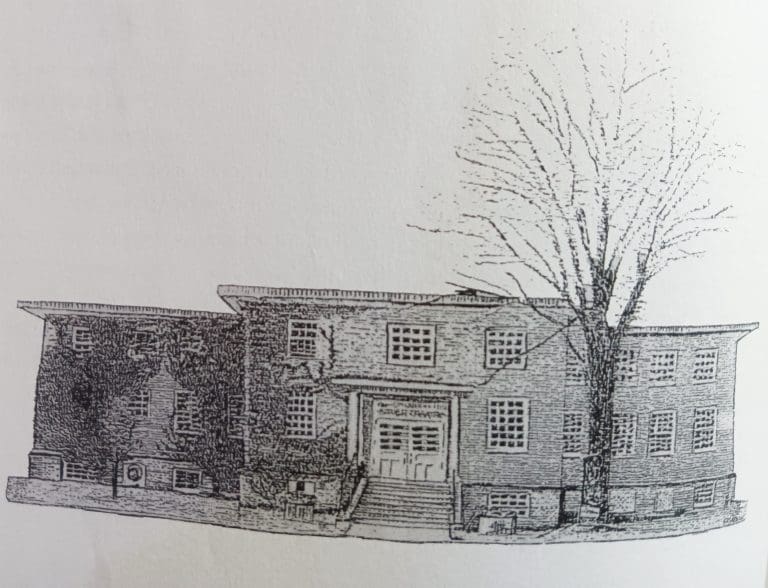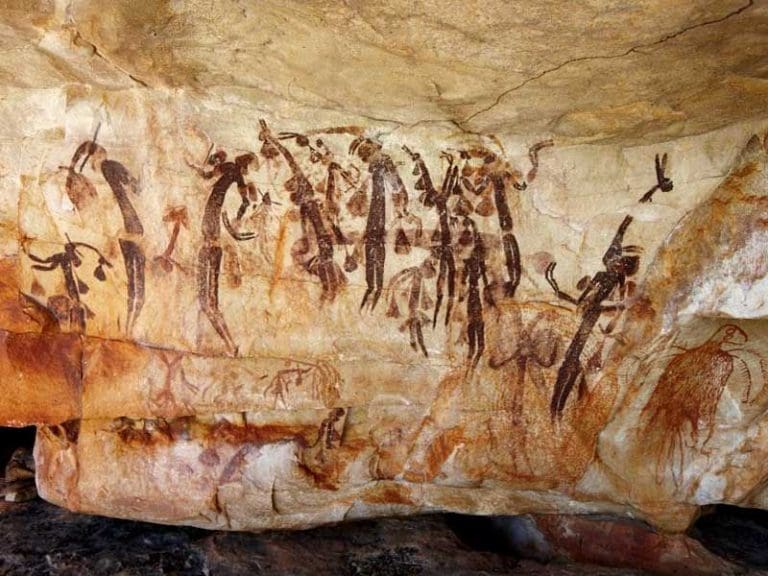Branding: Coordinating My Wardrobe to the HARP Colour Palette
Posted by Dorothy Lander: dorothy@tryhealingarts.ca The talented team at This is Marketing (https://www.thisismarketing.ca/) chose a unique colour palette to illuminate
HARP publishers and editors Dorothy Lander and John Graham-Pole believe that the climate emergency is the most urgent issue for population health and health equity. As part of HARP’s mission to use the arts to raise awareness of public health issues for a popular readership, we are creating this blog, Travels with a Low-Carbon Couple. We will tell our stories and record the challenges and triumphs we encounter as we attempt to reduce our carbon footprint and draw attention to the climate emergency.
In December 2016, we purchased a solar tracker through Antigonish Cooperative Energy (ACE) and their bulk purchases program. We christened our solar tracker Helio, shown below after the storm on April 9, 2018. The sun does the work of melting the snow and we have never had to use a brush to remove the snow.

The triumphs? We have not burned oil in our furnace for three years. The challenges? An expensive initial investment, because we had to add two heat pumps as we were below the minimum electric capacity for Nova Scotia Power to allow us to purchase 24 solar panels and continue to be connected to the grid. We are aware that our electric power is generated by fossil fuels, coal in the case of Nova Scotia. We were not quite prepared to give up our oil furnace as a backup. Our house insurance required that we replace our outside oil tank (steel) when it reached the 10-year mark. The price tag for replacing it in 2019 with a fibreglass tank was over $2000.
We are now taking steps to see if we can manage without a car entirely and re-purpose our garage. We purchased a brand new Ford Fusion Hybrid in 2010. For the past few weeks, we have been riding our bikes into town (a 5-kilometre trek) from Clydesdale three days a week, and having only one “car day” a week to do the essentials. Eva Brunelle-Bertrand took this photo of us on our bikes on August 15, 2019.


The triumphs? We have succeeded in keeping to the once-a-week car day. Our friends and neighbours have been so generous in offering to pick us up and deliver us to town whenever we want. We have taken up these offers so far by arranging to drive back into town when we have visitors to our home who are going that way.
The challenges? John did not learn to ride a bike as a child and has not had regular bike-riding practice as an adult, so he lacks confidence. He can be thrown off-balance when noisy trucks and cars come roaring past him on the narrow shoulders on Hawthorne Street. It so happens that we are often traveling home at the same time working people are driving home. Dorothy grew up riding a bike 2 miles to and from public school in rural Ontario for 8 years and to music lessons on Saturdays, so she has her 10,000 hours in.
“Share the Road” signs are not adequate to ensure the safety of our citizens on cars, bikes, or on foot. Some drivers are so wary of bikers that they give way to us at an intersection, for example at the intersection of Fairview, West Street, and the Tim Horton’s exit, effectively turning cyclists into ‘cyclestrians.’ We’ve also seen cyclists taking to the sidewalks as a way to be safe from traffic, causing danger to pedestrians. We will be supporting councilor Andrew Murray, who is making a strong case for bike lanes to the Town of Antigonish.
Our 2010 Ford Fusion Hybrid is now on the market (138,000 km) and we hope to sell it before our car insurance renewal due September 24th. We have pledged to avoid air flights, barring a family emergency that demands our immediate attention.
We are going by train (VIA) to Saskatoon in September, because John has been invited by Dr. Francis Christian, Editor-in-Chief, Journal of the Surgical Humanities, to speak to surgeons and other healthcare professionals at the University of Saskatchewan. John’s family (his two children and two of his aging sisters) live in the UK, and we have been making yearly flights to visit them. We plan to make this trip every two years at the most, and we have booked a cabin on a cargo ship for April 2020– a straight shot from Halifax to Liverpool in 7 days. It costs over twice as much as the airfare.
Stay tuned to this blog for stories about our travels by train and freighter and other close-to-home initiatives.
Finally, the triumphs and challenges that come with others’ responses to our plan. Overall, the response has been very positive, often concluding with, “I couldn’t do that. I am too comfortable with having convenient and timely transportation.”
The naysayers’ responses tend to start out, “Are you crazy? At your age? What if you get sick and need to get to healthcare quickly? Would you not fly if you had to visit someone in a hurry, say, someone close to you who is dying? Why at this time in your life and at such an expense when you are not likely to reap the benefits?”
Our response to the naysayers is: “Because we can. And we care about the next generation — that there will be a next generation who can enjoy our world as Nature intended, in all its beauty and bounty.
Climate Tour, Toronto, Sept. 14, 2019


Convocation Hall on the University of Toronto campus was the first stop of the Climate Tour with David Suzuki and Stephen Lewis, and the only one with Buffy Sainte-Marie.
How did we come to attend? Just another benefit of our commitment to slow train travel rather than airplanes. We did not know about the Climate Tour when we made our train reservations from Halifax to Saskatoon for Sept. 13. We had a layover in either Montreal or Toronto the night of Sept. 14 as the next train to the West did not leave until Sunday, Sept. 15. Only after we had decided to stay in Toronto, did we learn that the first stop of the Climate Tour was that very night. We booked our tickets online for general seating at Convocation Hall on the University of Toronto campus. Our train arrived in Toronto on time at 4 p.m. and the event began at 7:00. We expected a crowd so we arrived a good hour early to get a good seat, and already long lines had formed.


The hall was packed and people were turned away at the door. The youth contingent were largely university students in a reserved section of the auditorium. The most prominent demographic was in the same age group as the three speakers on the stage.


We were encouraged to take photos and videos and to share widely on social media. The energy in the room was palpable — a veritable climate activists’ rock concert. The audience rose as one singing along with Buffy “Carry it On.” The messages from David Suzuki and Stephen Lewis and Buffy Sainte-Marie were all hopeful, building on the momentum of Swedish teen Greta Thunberg, representing a tipping point from words to action on the climate crisis.
“We’re in this together,” was a common theme, and this trio stressed that the climate crisis demanded multiple approaches, using whatever gifts we are blessed with — in her own case, that of singer and songwriter.
The event was billed as non-partisan but with the federal election just over a month away, Stephen Lewis relentlessly mocked both the party that left climate change out of its campaign, and the party that campaigned on the urgency of climate change while moving ahead with building the pipeline.
David Suzuki urged us to take our lead from youth and also from the Indigenous People as stewards of Mother Earth
Posted by Dorothy Lander: dorothy@tryhealingarts.ca The talented team at This is Marketing (https://www.thisismarketing.ca/) chose a unique colour palette to illuminate


L to R Clockwise: John Graham-Pole aged 2 on Mummy’s knee with sisters Elizabeth, Mary, and Jane, High Bickington, Devon,


Posted by Dorothy Lander Once a month, John Graham-Pole and I showcase the publications of HARP The People’s Press at


Aboriginal Rock Mural Kimberley Region, Western Australia Posted by John Graham-Pole I don’t have answers to any of these questions,
| Cookie | Duration | Description |
|---|---|---|
| cookielawinfo-checkbox-analytics | 11 months | This cookie is set by GDPR Cookie Consent plugin. The cookie is used to store the user consent for the cookies in the category "Analytics". |
| cookielawinfo-checkbox-functional | 11 months | The cookie is set by GDPR cookie consent to record the user consent for the cookies in the category "Functional". |
| cookielawinfo-checkbox-necessary | 11 months | This cookie is set by GDPR Cookie Consent plugin. The cookies is used to store the user consent for the cookies in the category "Necessary". |
| cookielawinfo-checkbox-others | 11 months | This cookie is set by GDPR Cookie Consent plugin. The cookie is used to store the user consent for the cookies in the category "Other. |
| cookielawinfo-checkbox-performance | 11 months | This cookie is set by GDPR Cookie Consent plugin. The cookie is used to store the user consent for the cookies in the category "Performance". |
| viewed_cookie_policy | 11 months | The cookie is set by the GDPR Cookie Consent plugin and is used to store whether or not user has consented to the use of cookies. It does not store any personal data. |